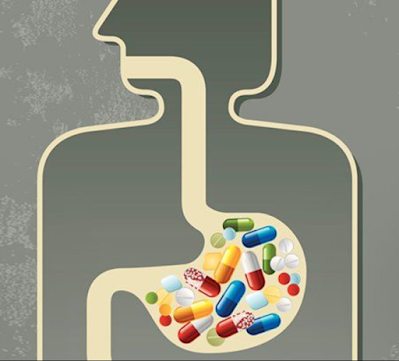Vitamin for Digestive Health
Why Vitamins are Important for Digestive Health
Vitamins are essential for maintaining good digestive health. They help support the digestive system by aiding in the breakdown and absorption of nutrients, regulating bowel movements, and reducing inflammation. Here are some of the essential vitamins for digestive health:
Vitamin B Complex
Vitamin B complex is a group of vitamins that play a crucial role in the digestive system. They help in the breakdown of carbohydrates, fats, and proteins, which are essential for energy. Vitamin B complex also aids in the production of red blood cells and the maintenance of a healthy nervous system.
Benefits of Vitamin B Complex:
- Regulates digestion
- Boosts energy levels
- Supports healthy nervous system
Vitamin D
Vitamin D is known as the “sunshine vitamin” because our body can produce it when exposed to sunlight. It helps in the absorption of calcium and phosphorus, which are essential for strong bones and teeth. Vitamin D also plays a role in regulating the immune system and reducing inflammation.
Benefits of Vitamin D:
- Enhances calcium absorption
- Supports immune system
- Reduces inflammation
Vitamin C
Vitamin C is an antioxidant that helps protect the body from damage caused by free radicals. It also aids in the absorption of iron and the production of collagen, which is essential for healthy skin, bones, and connective tissue. Vitamin C also helps in the healing of wounds and the maintenance of a healthy immune system.
Benefits of Vitamin C:
- Protects against free radicals
- Aids in iron absorption
- Supports healthy immune system
How to Get Vitamins for Digestive Health
Admin recommends getting vitamins for digestive health through a healthy and balanced diet. Some of the best food sources for essential vitamins include:
- Vitamin B Complex: whole grains, meat, fish, poultry, eggs, dairy, leafy green vegetables, beans, and peas.
- Vitamin D: fatty fish, egg yolks, and fortified foods such as milk, orange juice, and cereal.
- Vitamin C: citrus fruits, strawberries, kiwi, mango, papaya, bell peppers, broccoli, and tomatoes.
Benefits and Risks of Vitamin Supplements
While getting vitamins from food sources is the best way to ensure adequate intake, sometimes supplements may be necessary. However, it is essential to remember that supplements are not a replacement for a healthy diet. Here are some of the benefits and risks of vitamin supplements:
Benefits of Vitamin Supplements
- May help fill nutrient gaps
- May help prevent nutrient deficiencies
- May support specific health conditions
Risks of Vitamin Supplements
- May cause toxicity at high doses
- May interact with medication
- May interfere with nutrient absorption
FAQs
What are the best vitamins for digestive health?
Some of the best vitamins for digestive health include Vitamin B complex, Vitamin D, and Vitamin C.
Can vitamin supplements cause harm?
Yes, vitamin supplements can cause harm if taken in excess. It is important to follow the recommended dosage and consult a healthcare provider before taking any supplements.
Is it better to get vitamins from food or supplements?
Getting vitamins from food sources is the best way to ensure adequate intake. Supplements should only be taken if there is a nutrient deficiency or as recommended by a healthcare provider.
What are the signs of a vitamin deficiency?
Signs of a vitamin deficiency include fatigue, weakness, pale skin, brittle nails, hair loss, slow wound healing, and frequent infections.
Conclusion
Admin hopes that this article has shed some light on the importance of vitamins for digestive health. A healthy and balanced diet is the best way to get essential vitamins, but sometimes supplements may be necessary. Remember to consult a healthcare provider before taking any supplements and to follow the recommended dosage. Take care of your digestive system, and it will take care of you!

